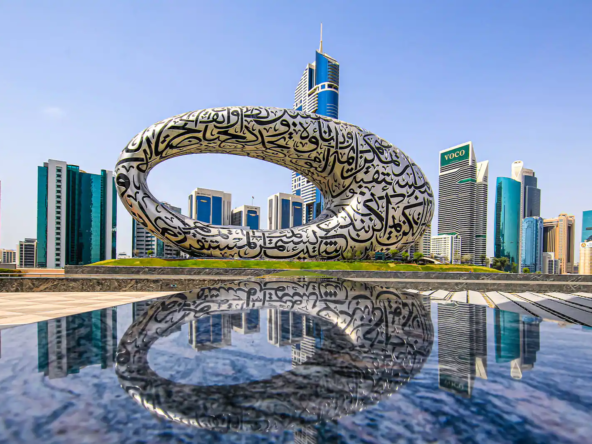By creating a government-led authority and infrastructure to measure and facilitate the growth of virtual assets, the UAE is keeping itself ahead of most of the world.
The Dubai Virtual Asset Regulation Law is aimed at creating an advanced legal framework to protect investors and provide international standards for virtual asset industry governance that will promote responsible business growth in the emirate, Sheikh Mohammed said in a statement.
What is a Virtual Asset (VA)?
A virtual asset can take the form of any digitized token of value that could be traded, transferred or used for payment. It does not include the digital representation of fiat currencies.
What are the Popular Virtual or Digital assets?
The most popular digital assets are cryptocurrencies and non-fungible tokens (NFTs).
Are Virtual Assets Regulated in the UAE?
Abu Dhabi Global Market was the first to offer a comprehensive regulatory framework in December last year. In Dubai, Virtual Asset Regulatory Authority (VARA) was established on March 9, 2022, to govern the new sector.
What is the role of Dubai’s VARA?
The Authority will be responsible for licensing and regulating the sector across mainland and free zone territories, excluding the Dubai International Financial Centre (DIFC). The authority is mandated with organizing and setting the rules and controls that govern the conduct of VA activities, including management services, clearing and settlement services, in addition to classifying and specifying types of virtual assets. VARA will provide a full range of services in coordination with the UAE Central Bank and the Securities and Commodities Authority.
Which Virtual Assets will VARA’s Domain Cover?
VARA has authority over operating and managing virtual assets platforms services; exchange services between virtual assets and currencies, whether national or foreign; exchange services between one or more forms of virtual assets; virtual asset transfer services; VA custody and management services; services related to VA portfolio; and services related to the offering and trading of virtual tokens.
Is it Illegal to Trade Virtual Assets without VARA’s Permission in Dubai?
Yes. It is prohibited for any person in the Emirate to engage in activities without VARA’s authorization. The person wishing to practice any of the virtual asset activities must establish a presence in Dubai to conduct business.
What is the Penalty for Violators of Dubai Virtual Asset Regulatory Laws?
The acts that constitute a violation of the provisions of Dubai Virtual Asset Regulatory Laws and its related decisions, and the fines imposed on a violator, shall be determined by the board of directors of the Dubai World Trade Centre. In addition to the penalty of a fine, the VARA can suspend the permit for up to six months, cancel the permit, and coordinate with the competent commercial licensing authority in the Emirate to cancel the commercial license.
Where can we Buy and Sell Virtual Assets?
Virtual assets can be bought and sold on different digital platforms such as DEX Crypto Exchange, Matrix, Saxo Bank, Binance, Coinbase and others.
What are the most Expensive Virtual Assets ever Sold?
Some of the most virtual assets sold include the purchase of NFT land for over $913,000, a virtual nightclub for $635,000, a controversial traditional videogame, Second-Life, sold for $50,000 and a popular game Dota 2 went for $38,000.
What was the World’s first Sold NFT Property?
TechCrunch founder Michael Arrington sold his Kiev apartment as part of the world’s first NFT property auction.
Impact of Dubai’s Virtual Assets Law on Real Estate Market:
Real estate is most likely to be the first sector to widely adopt non-fungible tokens (NFTs) for real-world applications, according to some of Dubai-based real estate experts, that also said “One advantage for the property market is that royalties can be built into these tokens, meaning they have the potential to be used alongside Real Estate Regulatory Authority (RERA) title deeds, or for the automatic collection of levies such as the 4% Dubai Land Department (DLD) fee, for example.
Real estate experts also point out that there’s no doubt that traditional property deeds and mechanisms will continue to be used for many years to come, but certainly see blockchain-enabled technology, such as NFTs, as the future of properties industry.
The virtual assets law and the new regulatory authority is also likely to be welcomed by UAE residents, investors, and open up the Dubai property market and this will have an impact on business start-ups and established businesses opening offices in Dubai, innovation, creation, and so much more, which proves again that Dubai’s vision is set on the advancement for the future.
The real estate and holiday home industries are sure to benefit greatly, this will entice property investors who can buy property with their cryptocurrency.



